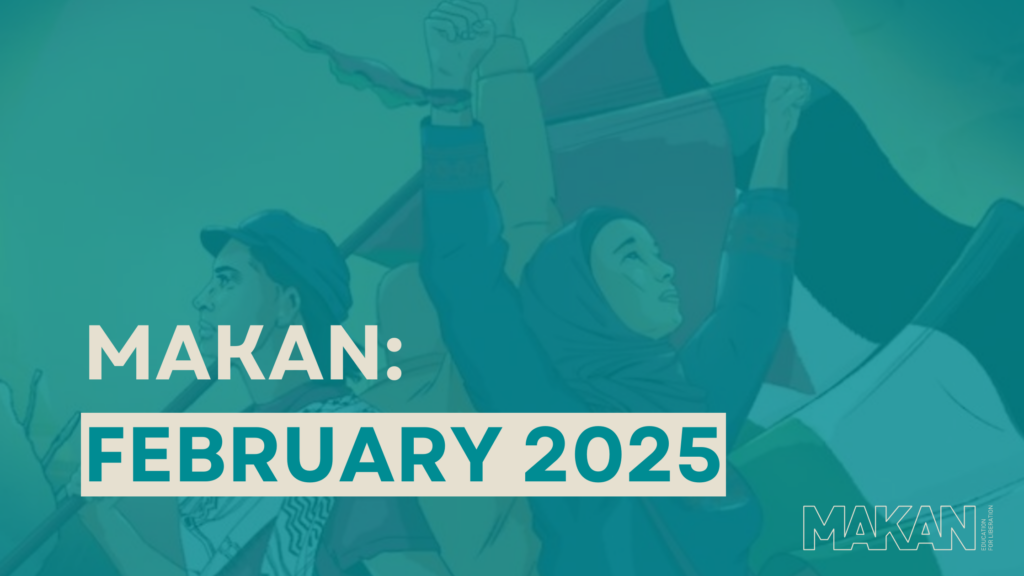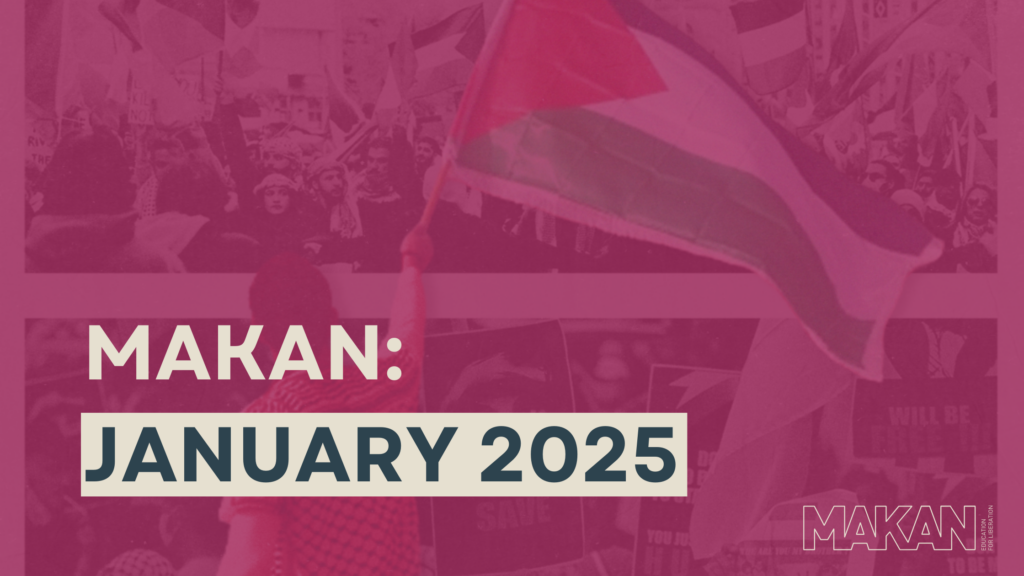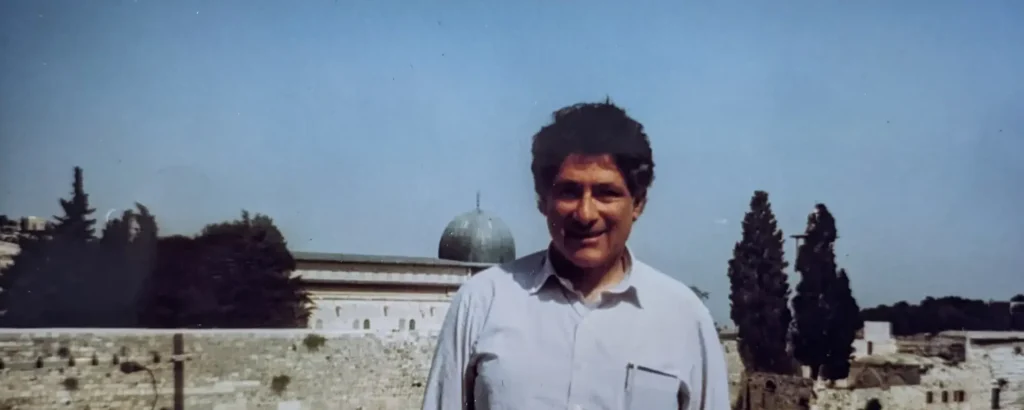Towards Long-Term Transformative Education: Behind the Scenes with Makan’s Educational Programmes
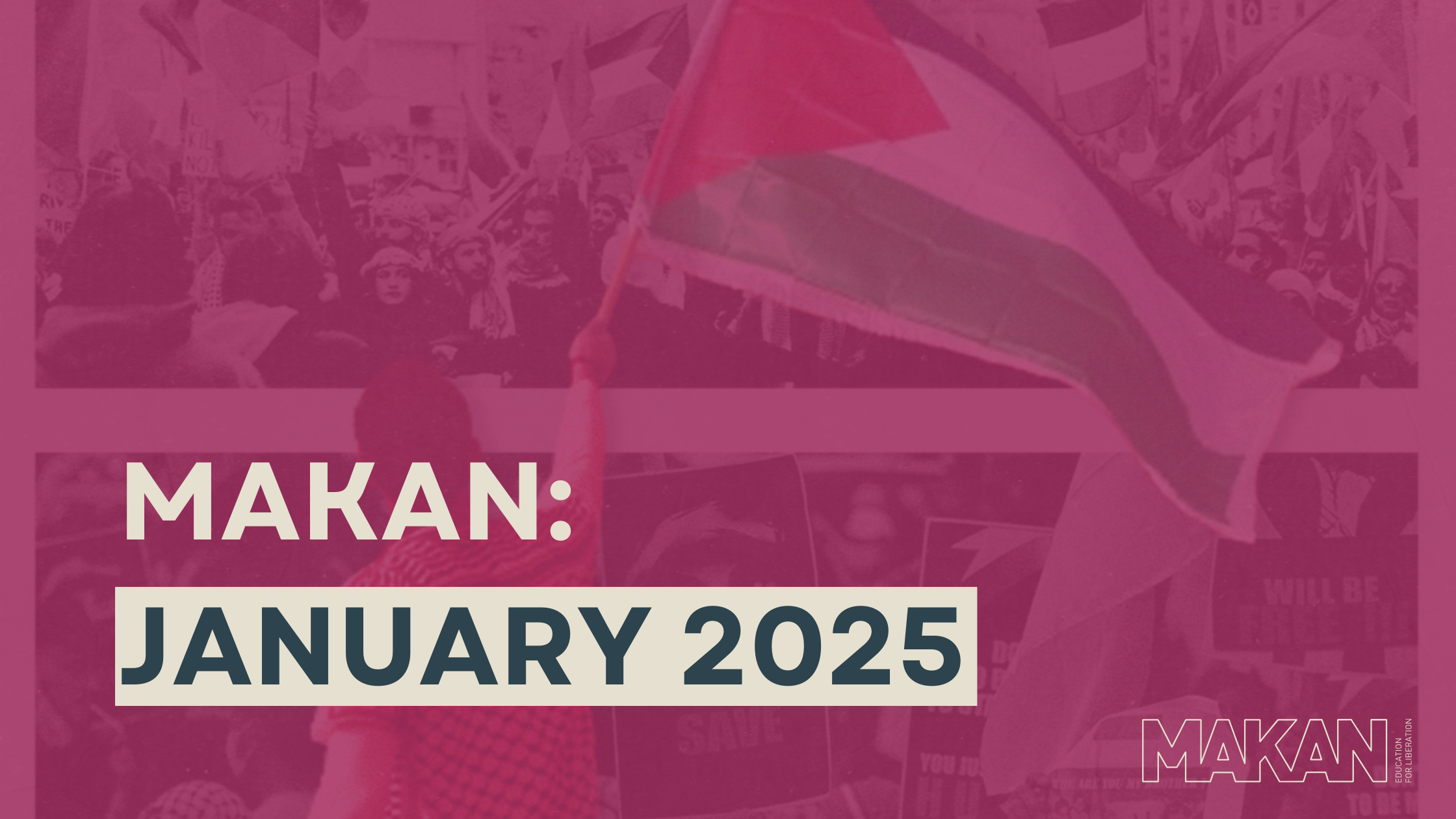
After a year of meeting the increased demand in our work – training nearly 2,000 trade unionists, cultural workers, students, educators, grassroots organisers and holding 79 workshops between our team of 3 – our programmes team returned to work in early January to strategise about how we institutionalise long term infrastructure in our transformative education programmes to ensure that the relationships built since October 2023, and the educational efforts across civil society, are not lost and are recalibrated for the long-term work that we need to undertake.
Our Programmes team will co-write updates on the work we do as one small way of sharing the ways in which we’re working to institutionalise and engage with this long-term work. We’ll share what it takes to build our educational trainings, where we turn to for guidance and inspiration, and give a snapshot of our work behind the scenes on a monthly basis. This is our first entry.
A central part of institutionalising long-term transformative education is working to address a plurality of questions in tandem:
- How do we respond to the immediate needs of the liberation movement?
- How do we build educational training and resources for the medium and long term that are able to straddle across various struggles?
- How do we ongoingly educate ourselves as educators and also continue incorporating liberatory pedagogical practices into our work?
- How do we learn from the lessons of the past 16 months to build sustainable ways of working so we can continue multiplying the number of people invested in transformative education as a central part of their organising and mobilising tactics?
- How do we continue to creatively address transformative education as a vehicle and site for anti-colonial and anti-imperialist strategies from various locations?
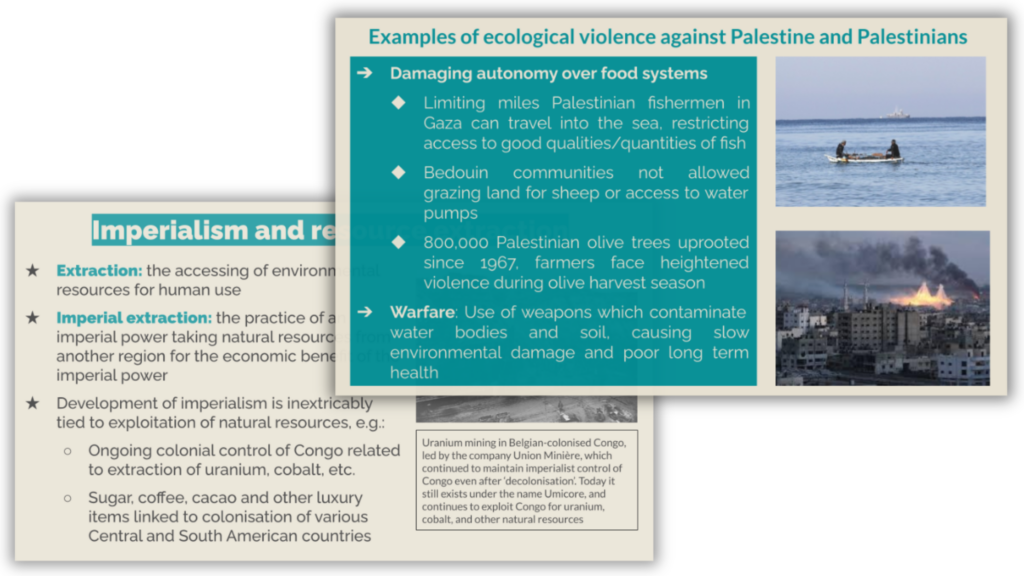
We decided to partner up with our close friends at Shado Mag for a public online training series to kick off the year as a way of bringing new people into the fold from January to mid-February.
- On 22 January we held an online Reframing Palestine training to provide organisers and activists with foundational knowledge on the building blocks of the Palestinian struggle.
- We also held on 5 February our Disability Justice training, which focuses on providing participants with a foundational understanding of the models of disability, and resituates disability justice as central to the Palestinian liberation movement.
In the lead up to this training, our programmes team co-wrote an article in January for Shado mag, to be published in February, that reflects on our experience as a Palestinian-led educational organisation that is actively working towards educating our audiences on the centrality of disability and debility in the Palestinian struggle. Our aim for writing this was to open a space where we examined our audience’s response to the disability justice workshop and what this tells us on a macro level about how disability justice is not as prioritised or seen as central to liberation movements – and using this space to mobilise people to apply for the training. As a part of this effort, we created and published with Shado Mag a new video that looks at the limitations of engaging with disability in Palestine through the Medical and Charity models of Disability.
Responding to feedback from close partner organisations who invited us to lead trainings for their audiences, we began breaking down our foundational climate justice training to develop two new trainings from this template – one focusing on ‘Settler Colonialism & Ecological Violence in Palestine’ and another focusing on ‘Connecting Israel, Imperialism & the Climate Crisis’. These trainings are extensions of themes covered in our ‘Free the People, Free the Land’ training, and offer a different approach of learning for participants to deepen our knowledge on themes surrounding slow violence, settler colonialism and imperialism’s commodification of land, historical and contemporary examples of ecological violence against indigenous peoples and and all living things on their lands.
This new educational approach prioritises close readings of texts and images as a group, engaging in discussions, and co-analysing materials. Breaking down and reformatting our existing educational material requires us to re-think our methods and objectives, keep up to date with new research within the wider field of Palestinian scholarship and education, and develop various activities that would facilitate participants’ critical engagement with the immediate materials in the training and the conditions that we live under.
To build these new trainings we engaged with:
- Queercircle’s Programmes
- Maya Wind, Towers of Ivory and Steel: Towers of Ivory and Steel: How Israeli Universities Deny Palestinian Freedom
- Soundtrack to a coup d’etat
- bell hooks, Teaching to Transgress
- Danah Abdulla, Design Otherwise: Transforming Design Education in the Arab Region
- Resist & Renew’s Workshops
- Mario Novelli, Birgül Kutan, Patrick Kane, Adnan Celik, Tejendra Pherali and Saranel Benjamin, Laboratories of Learning: Social Movements, Education and Knowledge-Making in the Global South
- Funding Freedom’s Report Launch
In the coming weeks, we will be holding our How to Talk About Palestine online training as the final installment for our joint series with Shado Mag (for now!) and advertising new upcoming online workshops.
We’re also launching a public call out to apply to become an educational facilitator with Makan. Deadline to apply to be considered is Tuesday 25 February at 6.00pm London time. To learn more about the facilitator programme, our criteria and the application process, please click here.
We’ll check back in at our next roundup with further updates on our work behind the scenes, our upcoming public events, the lessons learned by our Programmes team, and resources produced by the wider liberation movement that inspire our work.
Until liberation,
The Programmes team
Explore
Palestine 101
Learn the basics
Related posts
Making Room for Growth: Behind the Scenes with Makan’s Educational Programmes
With a renewed sense of urgency across sectors in the wider liberation movement, the desire for political education is growing and growing. As a result,…
Towards Long-Term Transformative Education: Behind the Scenes with Makan’s Educational Programmes
After a year of meeting the increased demand in our work – training nearly 2,000 trade unionists, cultural workers, students, educators, grassroots organisers and holding…
Edward Said & The Question of Palestine at London’s Royal Festival Hall
Makan’s Director, Aimee Shalan, was honoured to be invited by the Palestine Festival of Literature and Fitzcarraldo Editions to MC a landmark event on 20...
